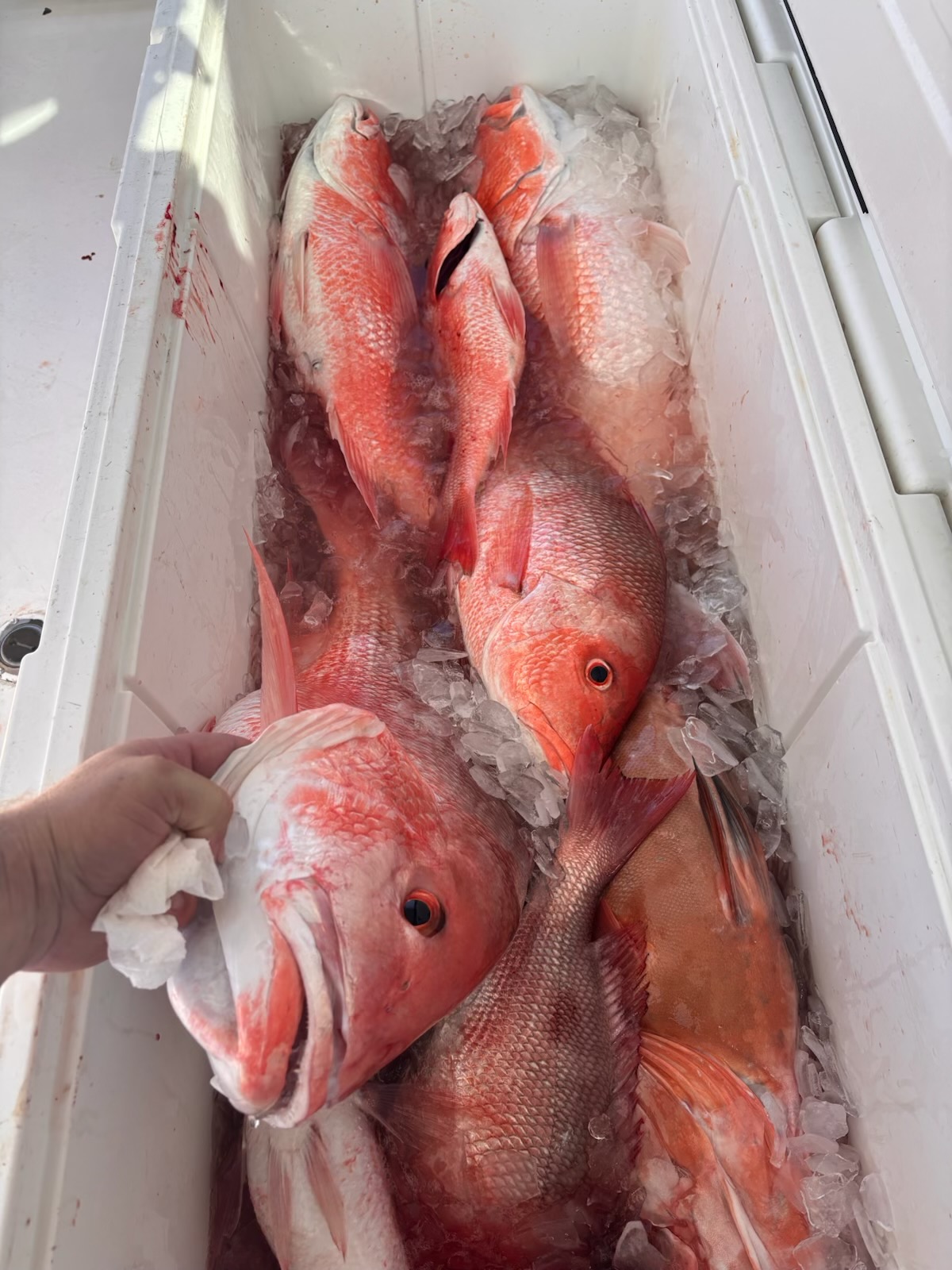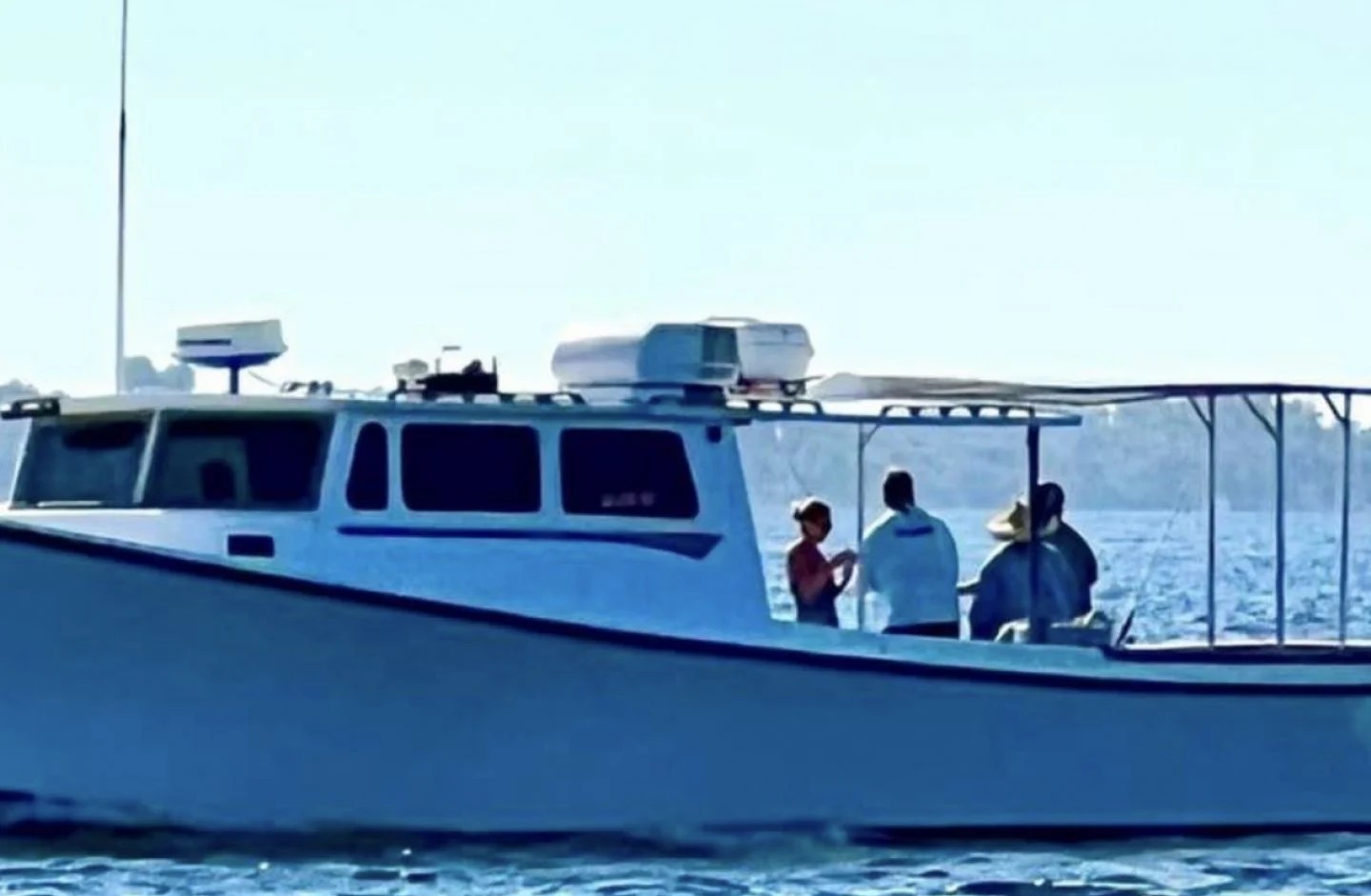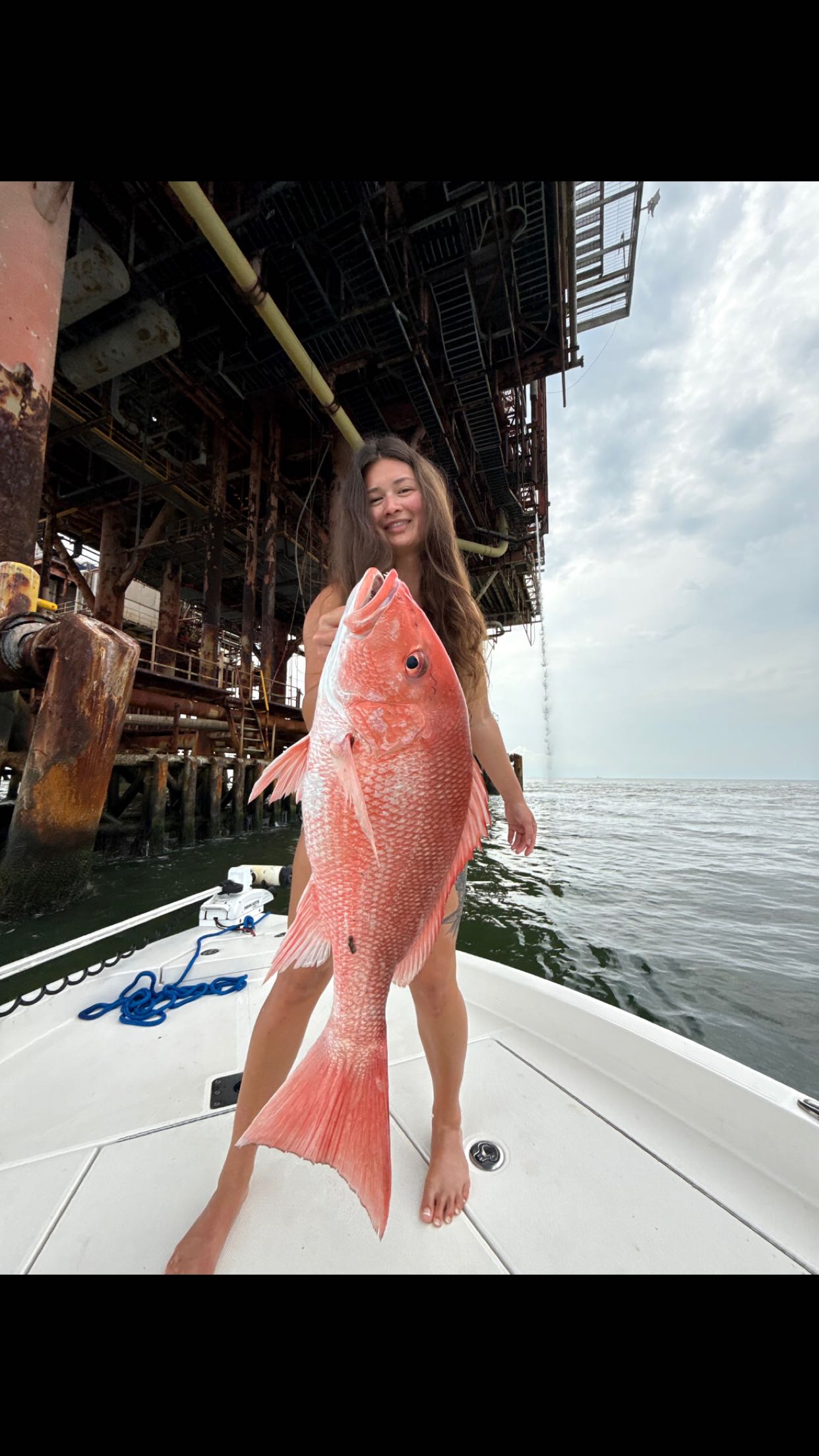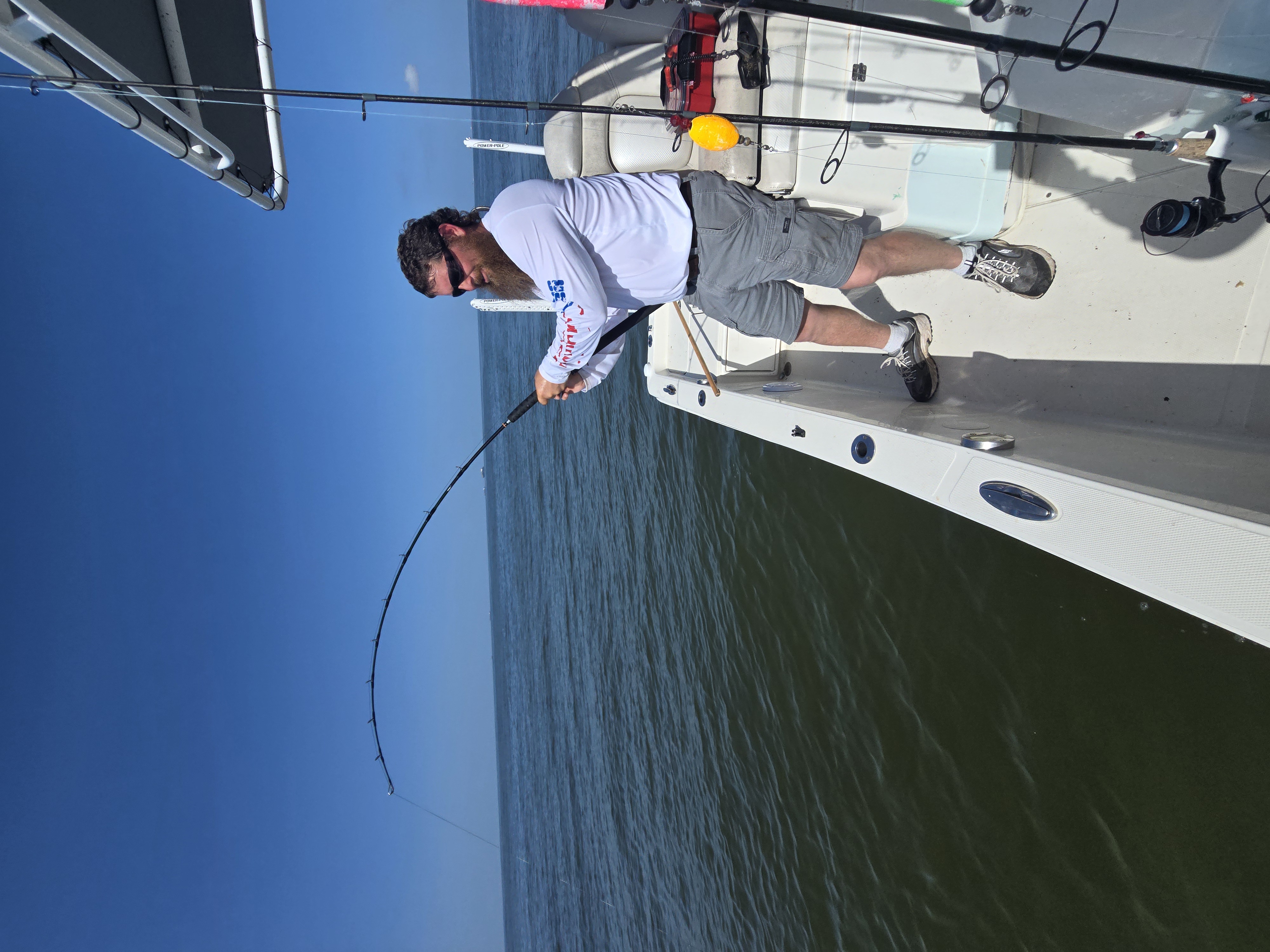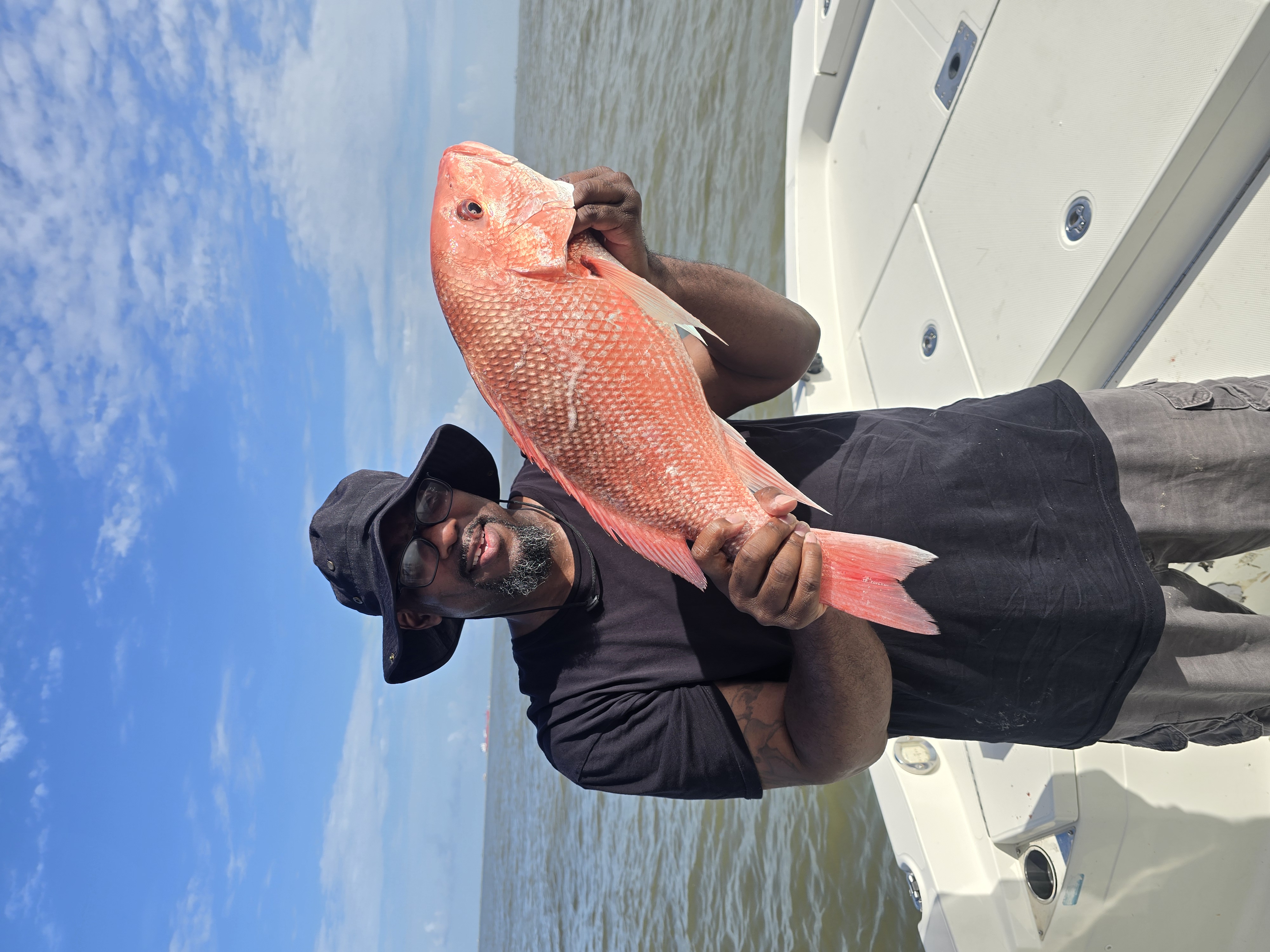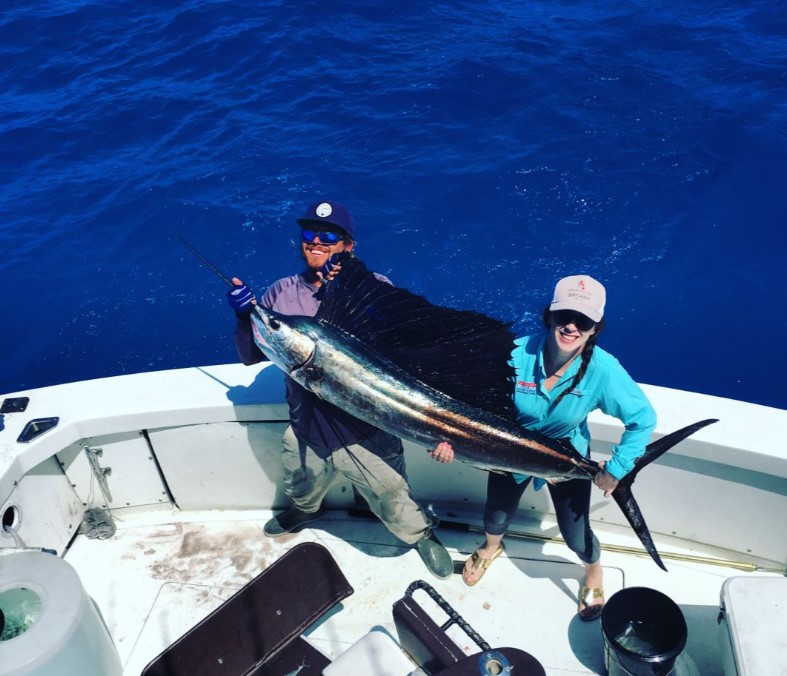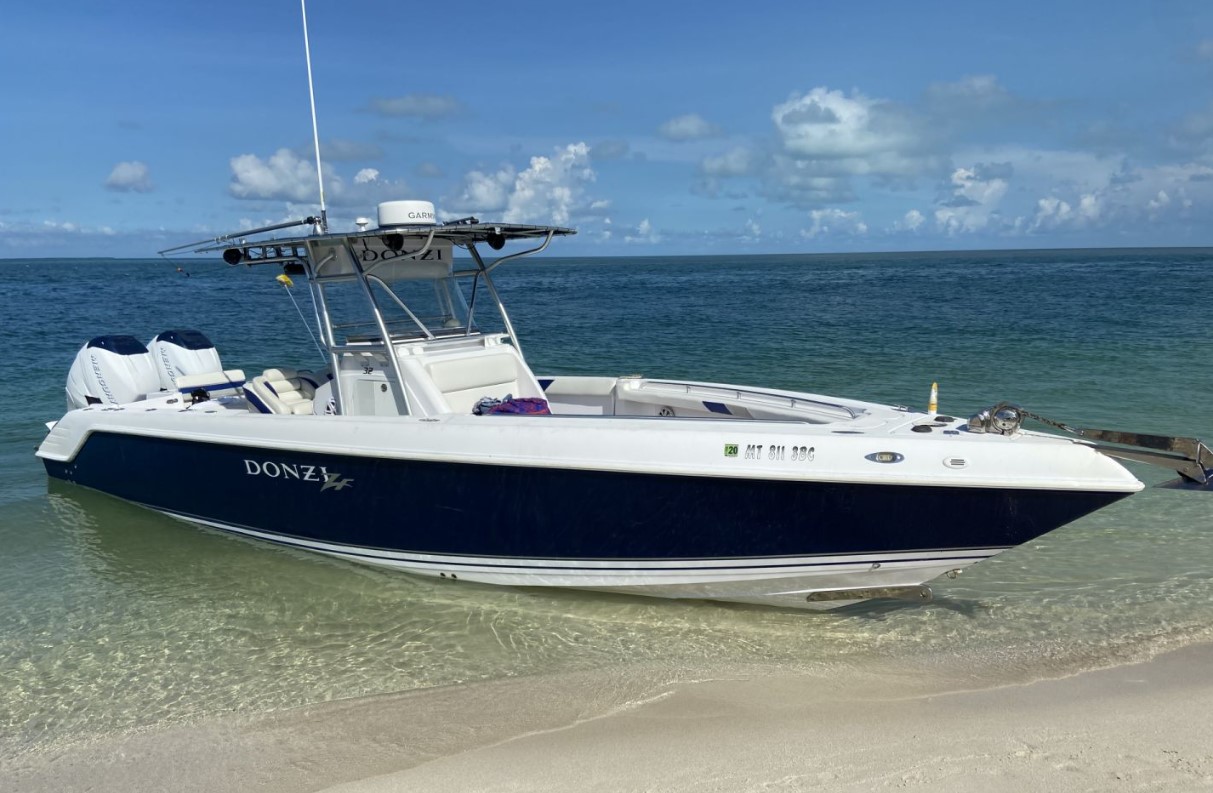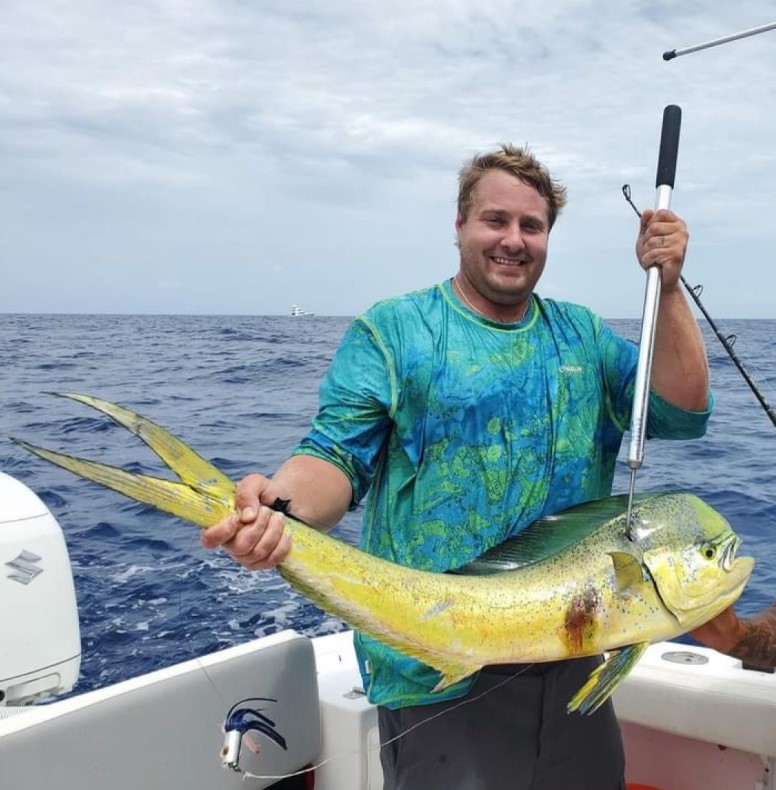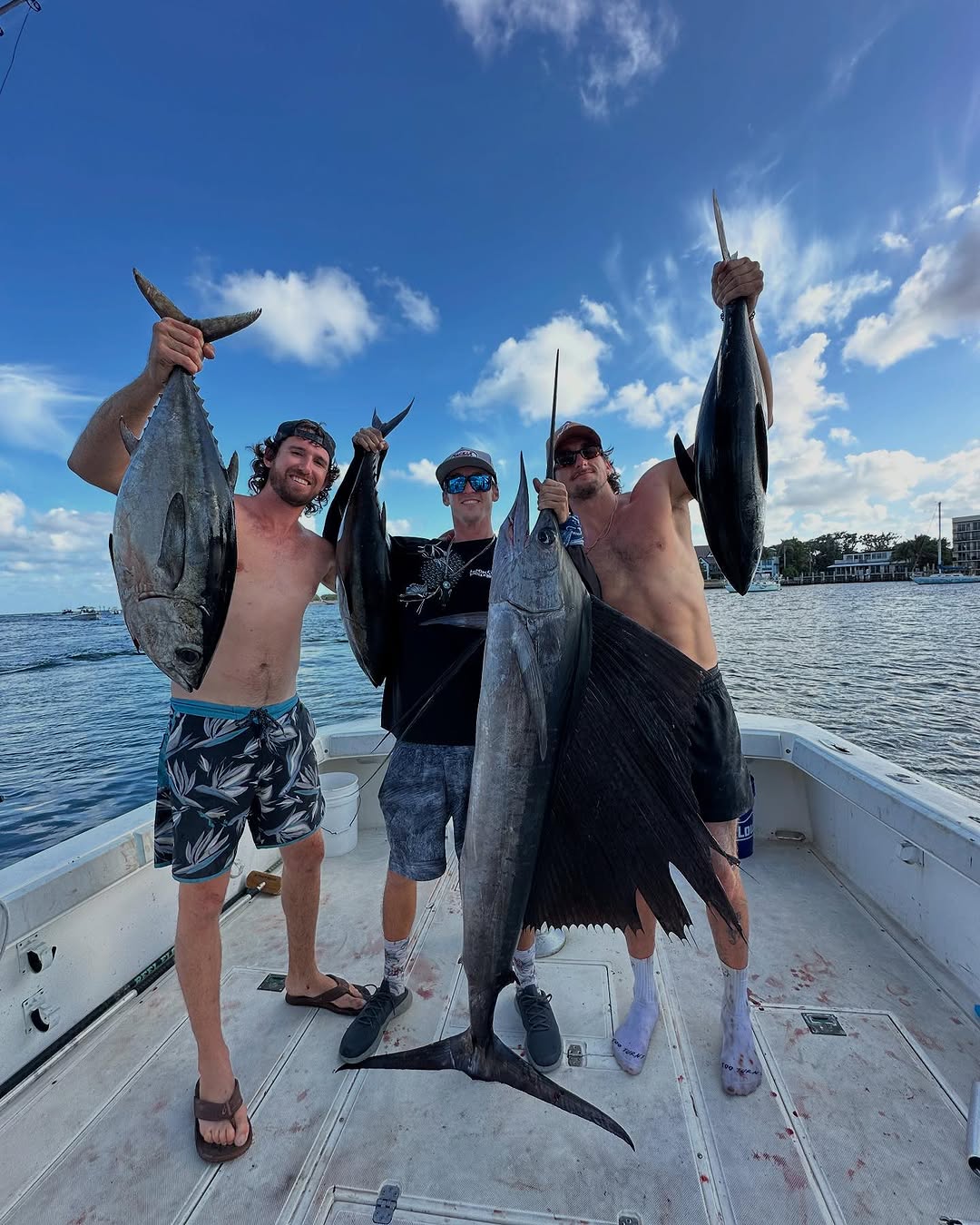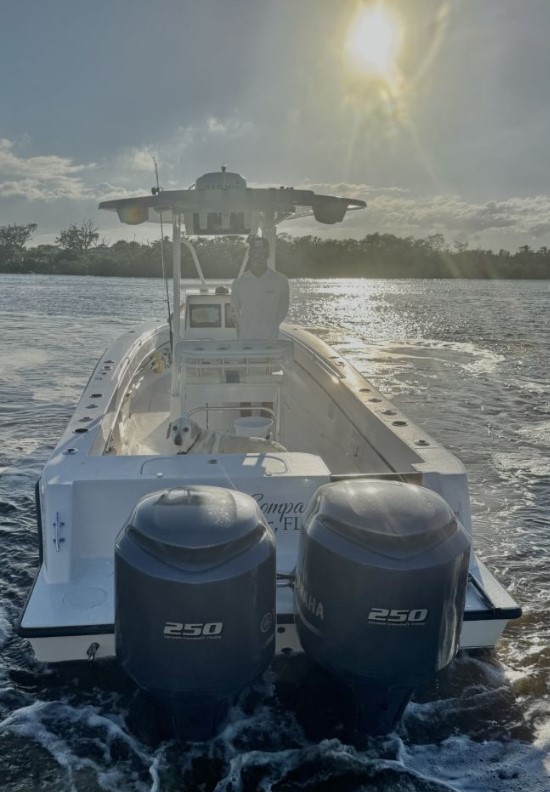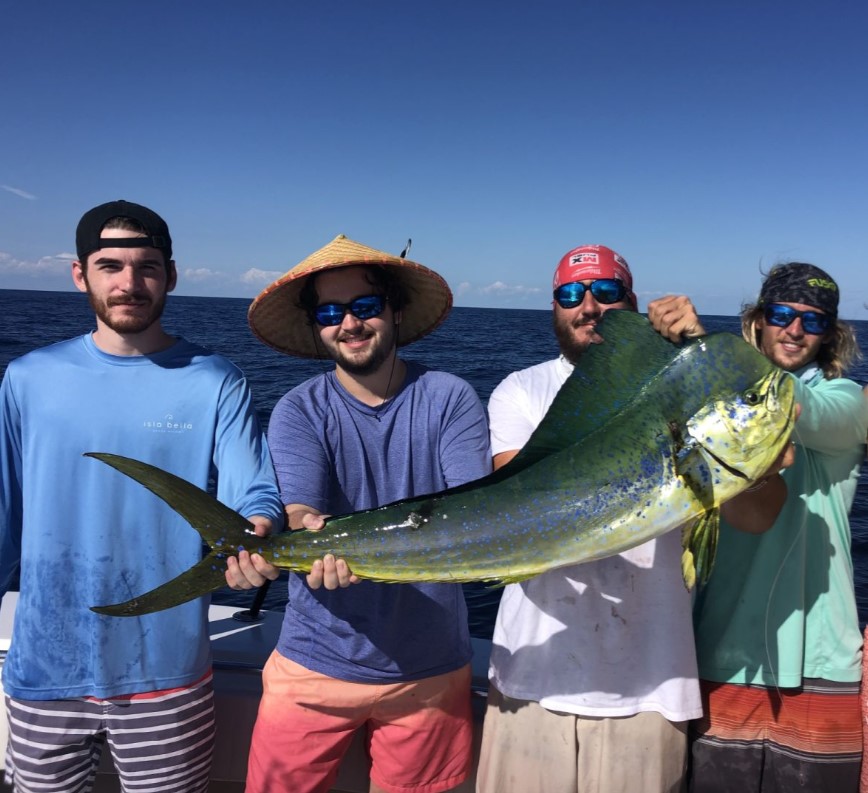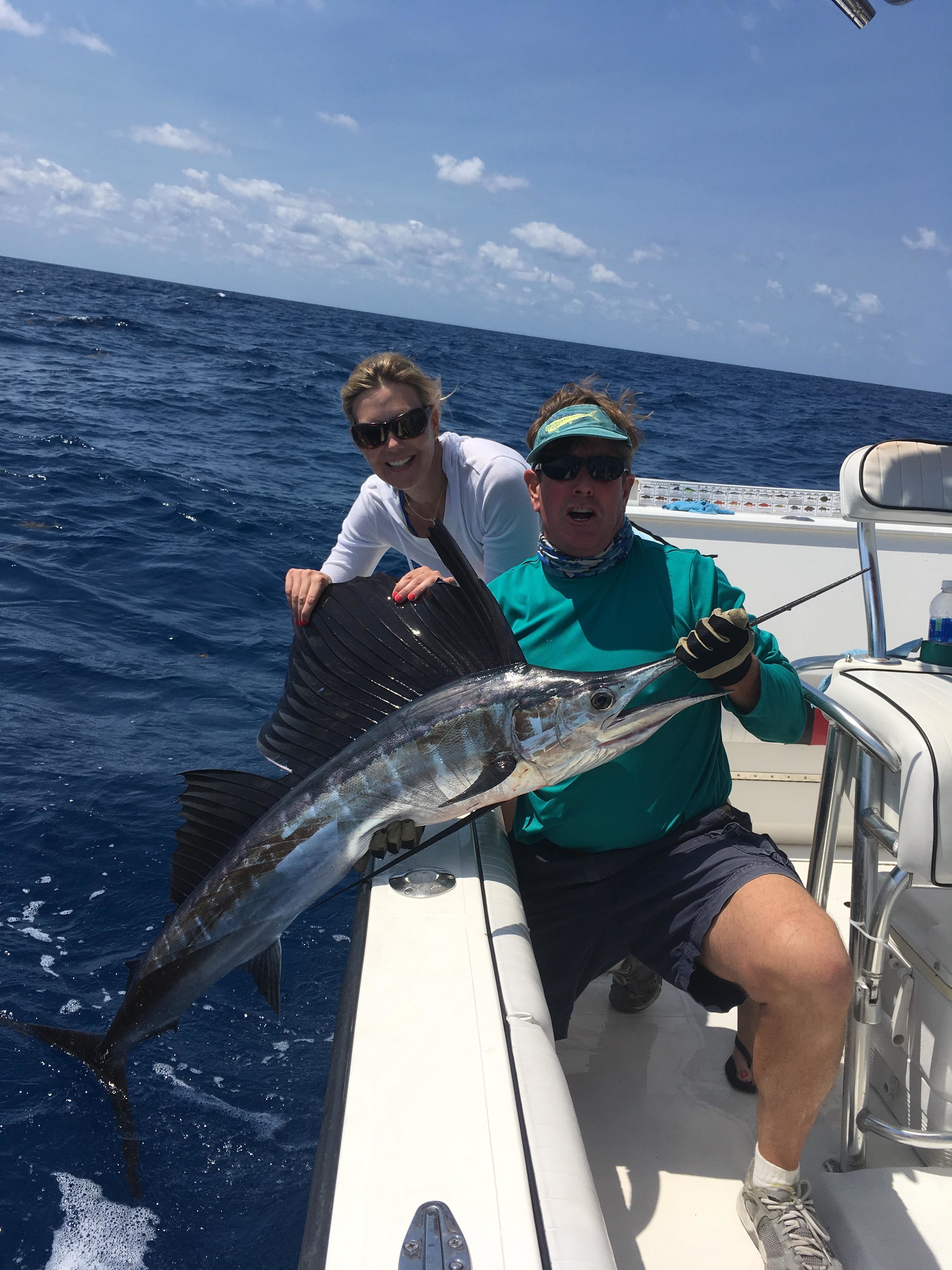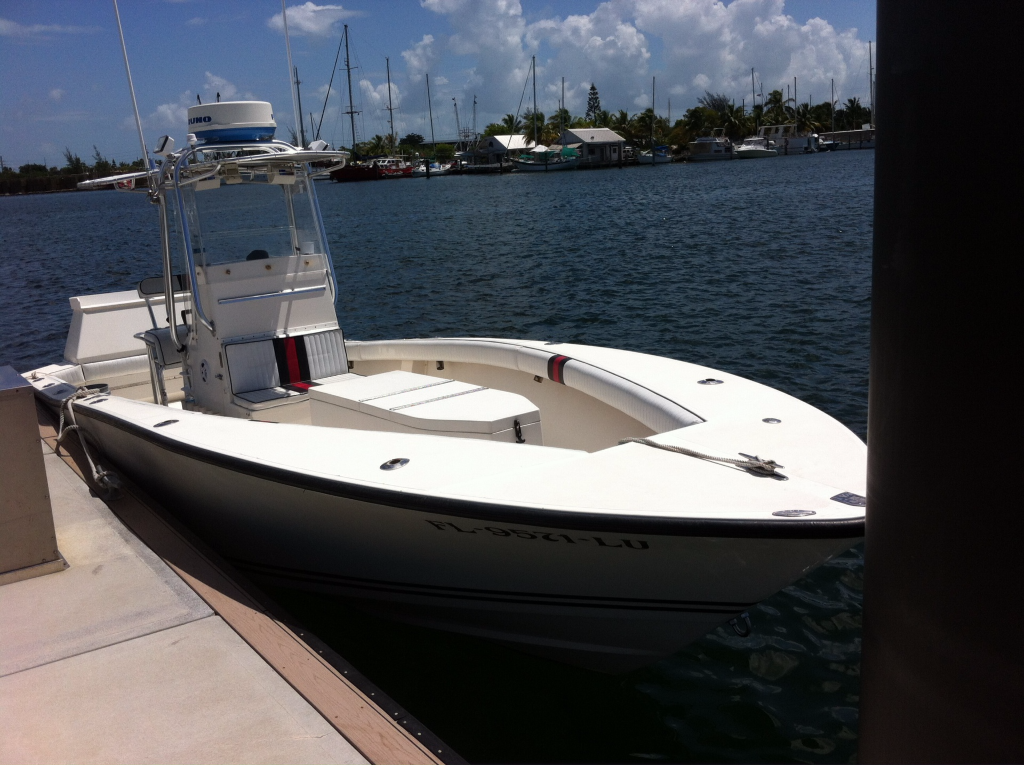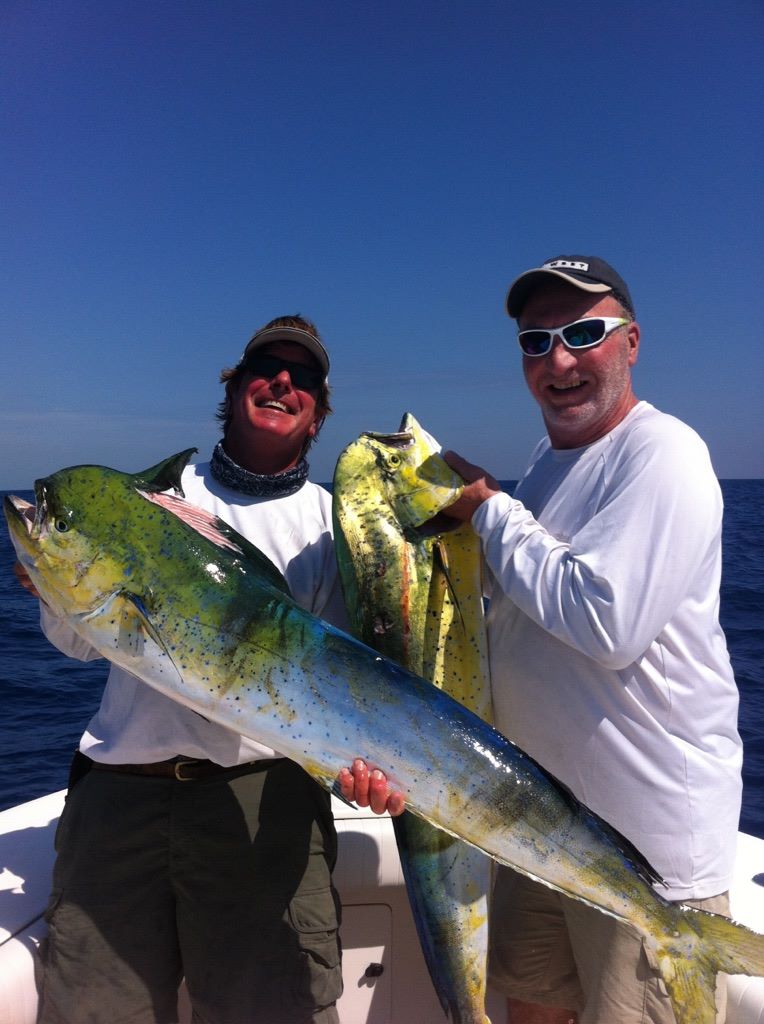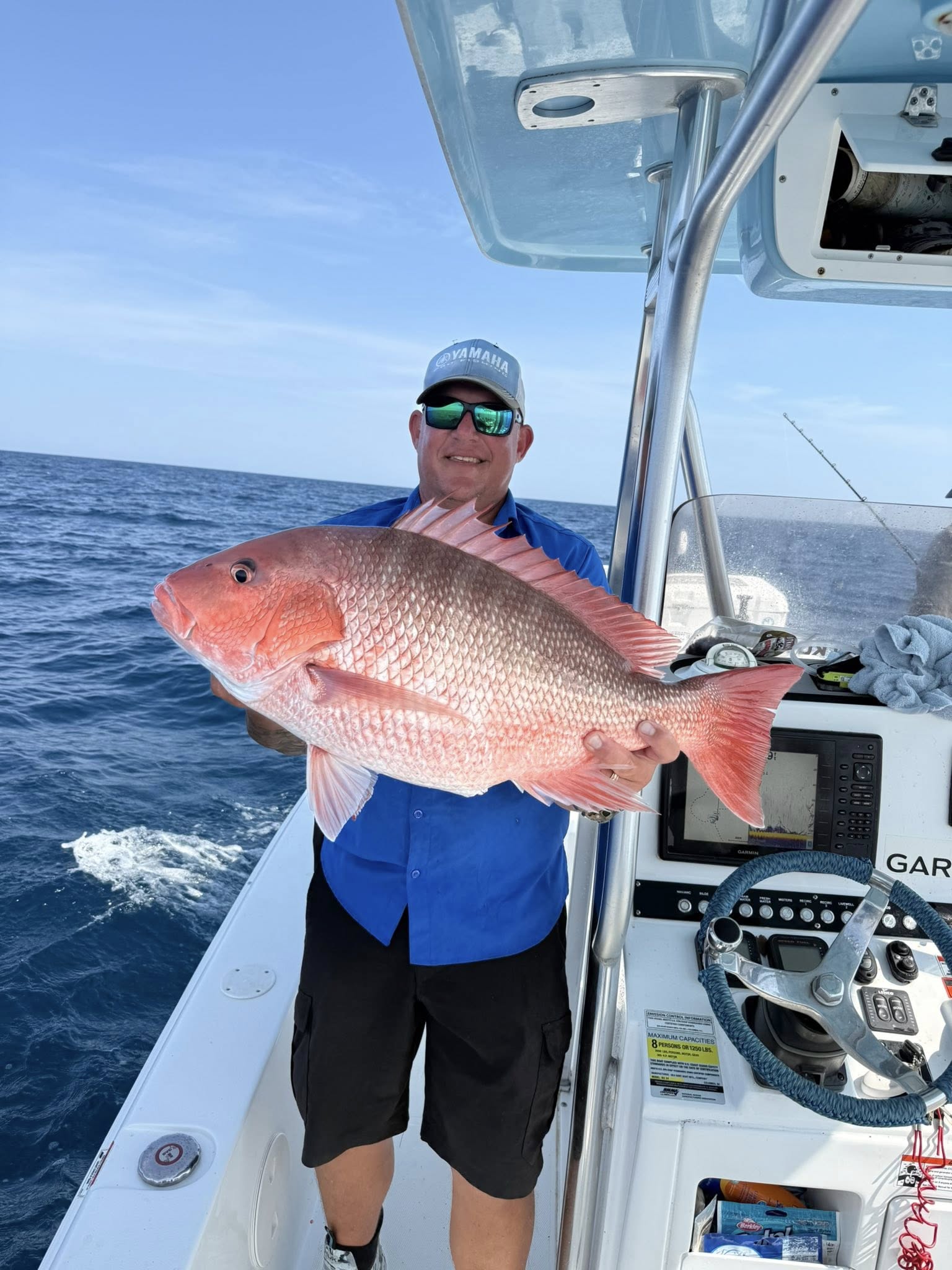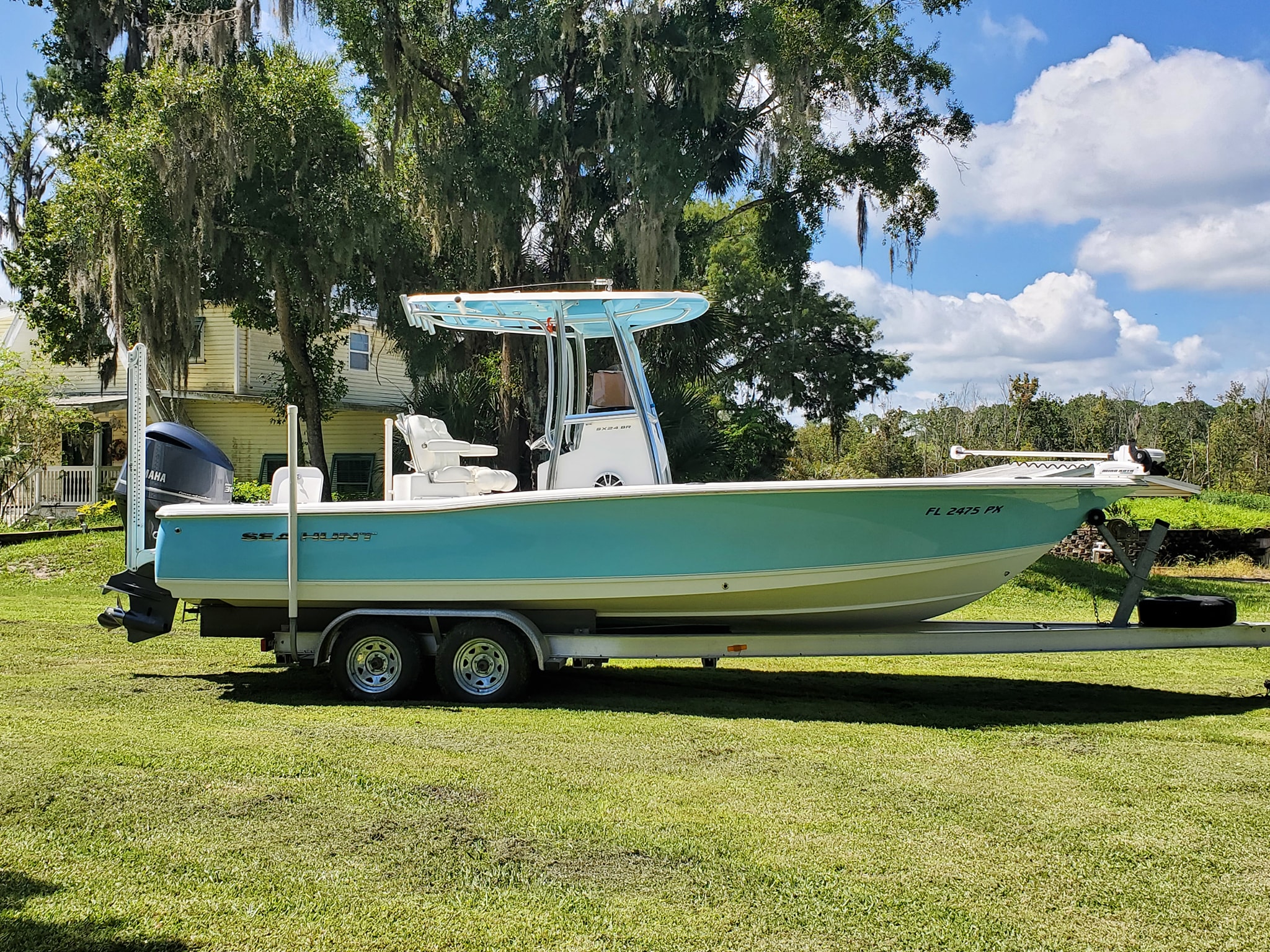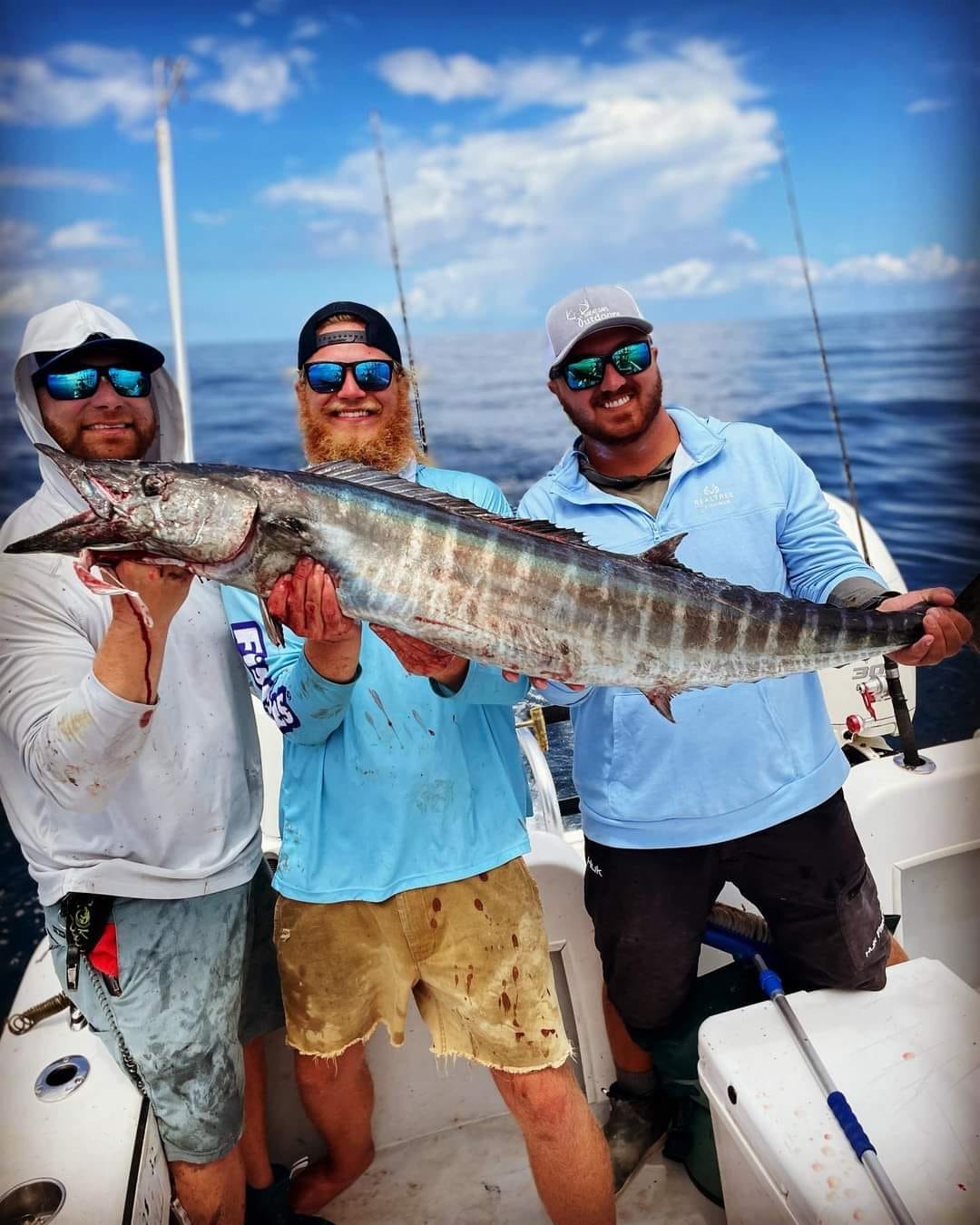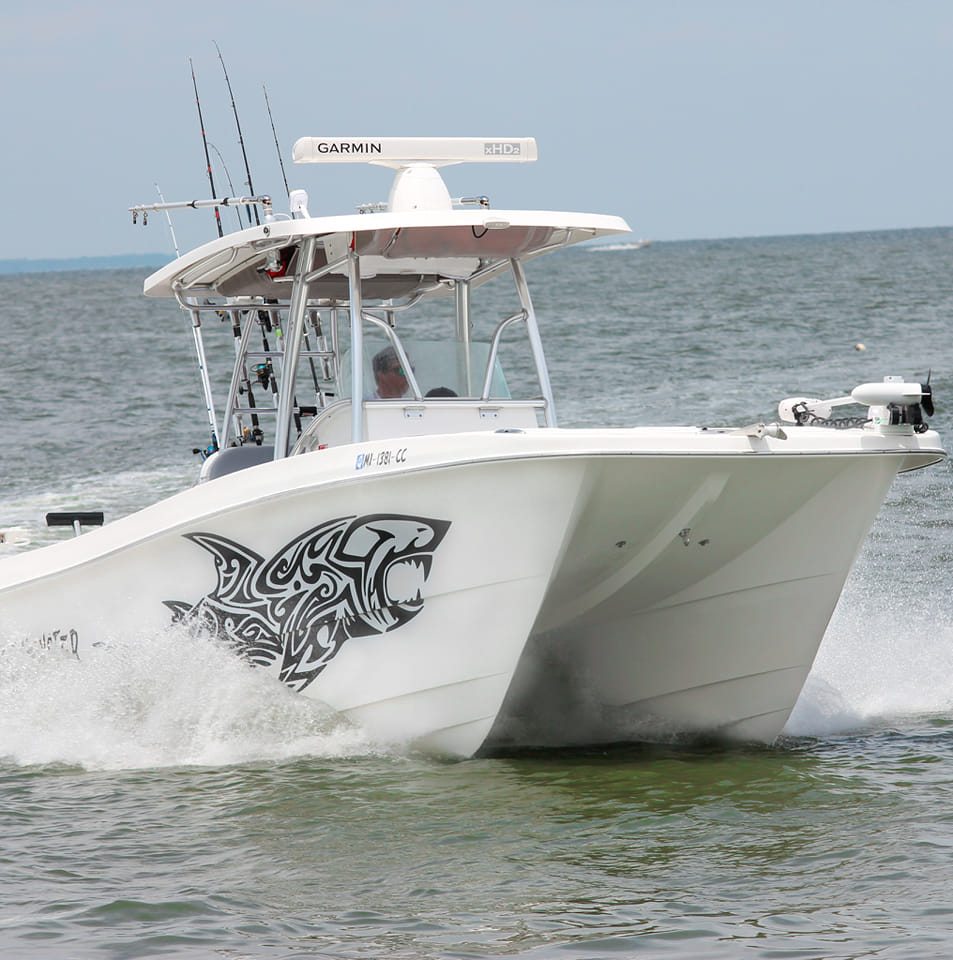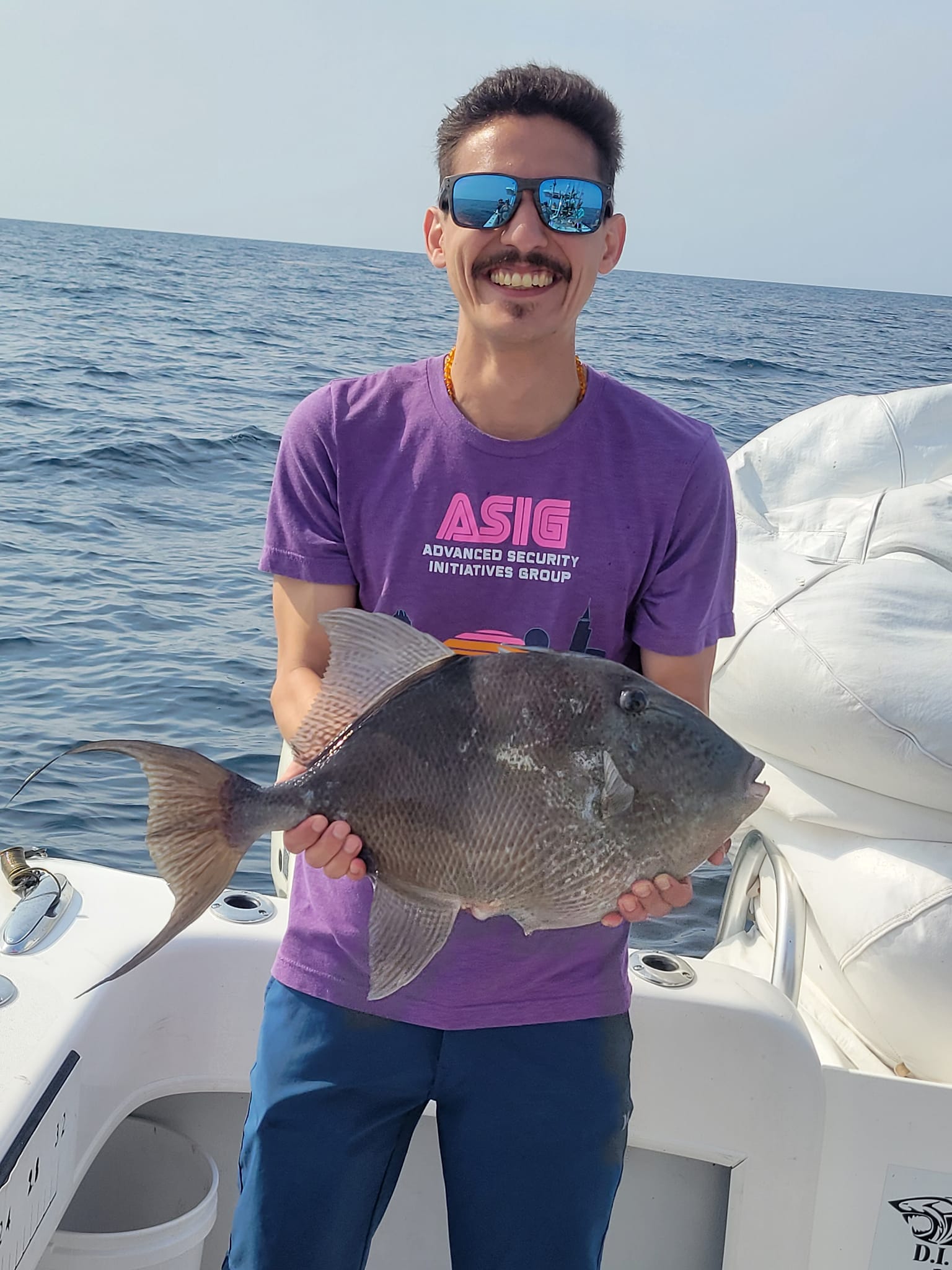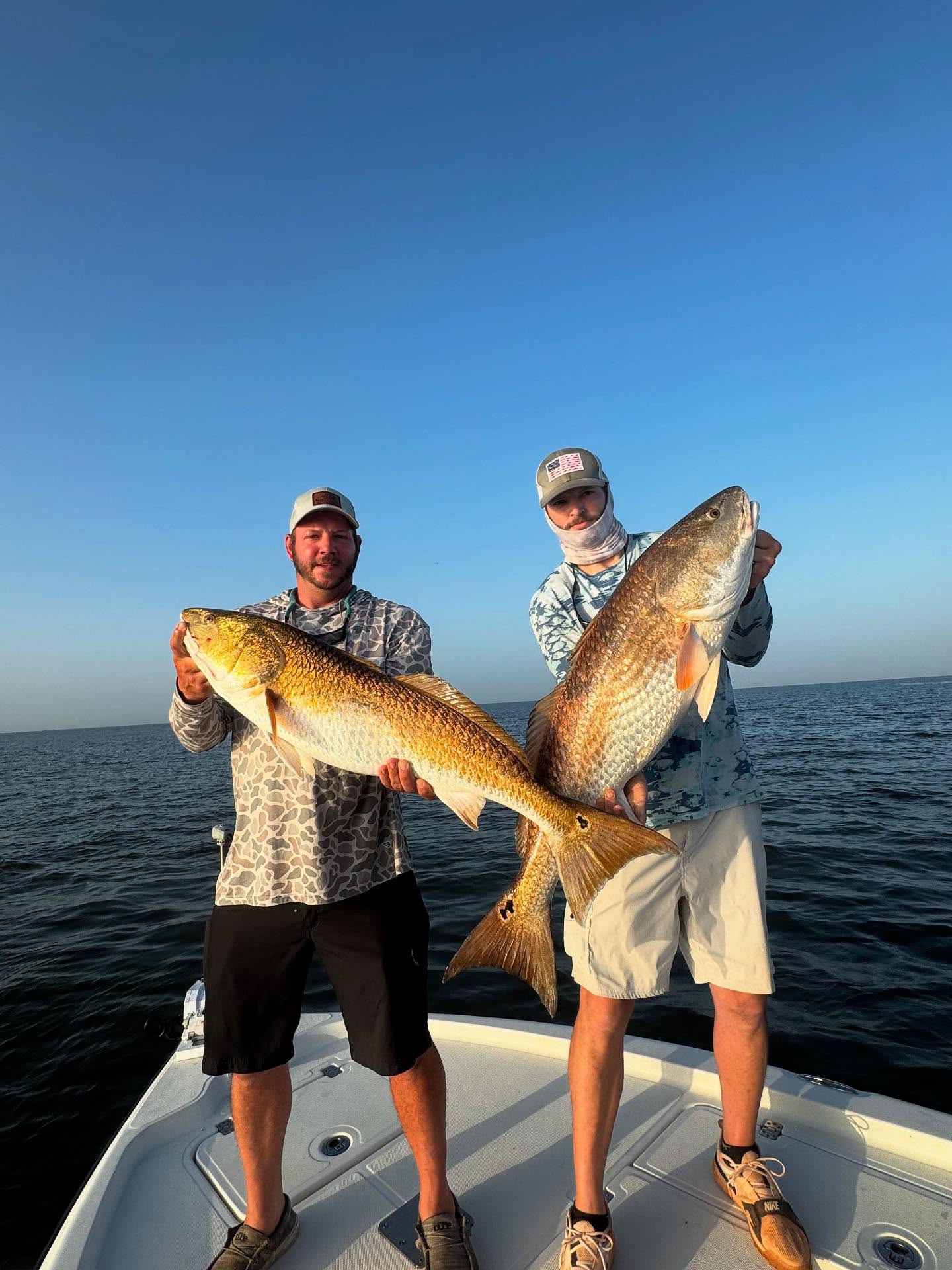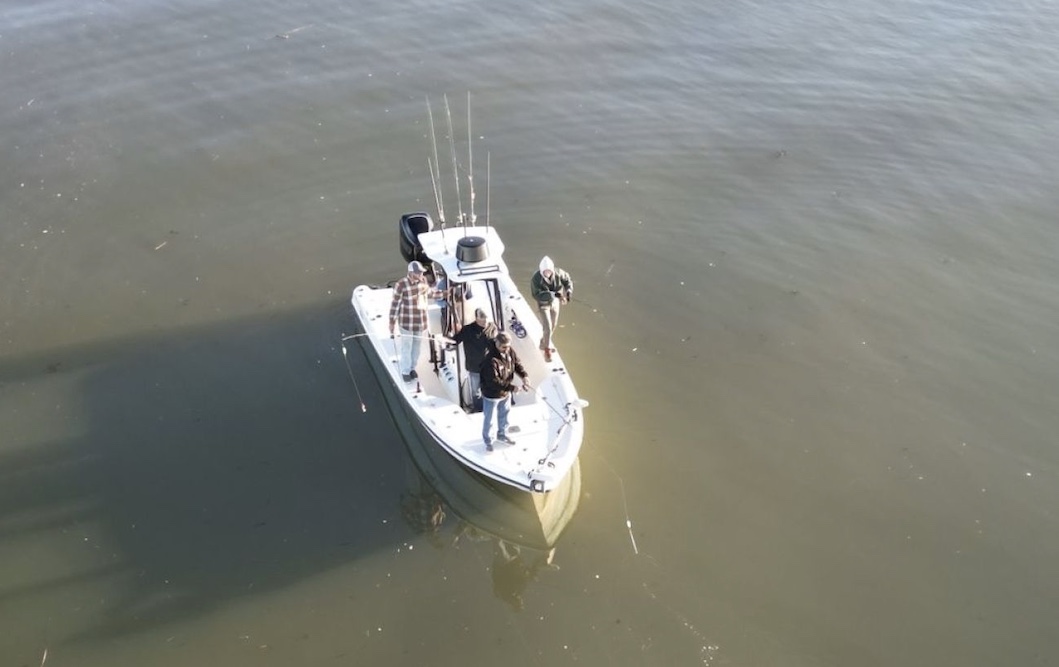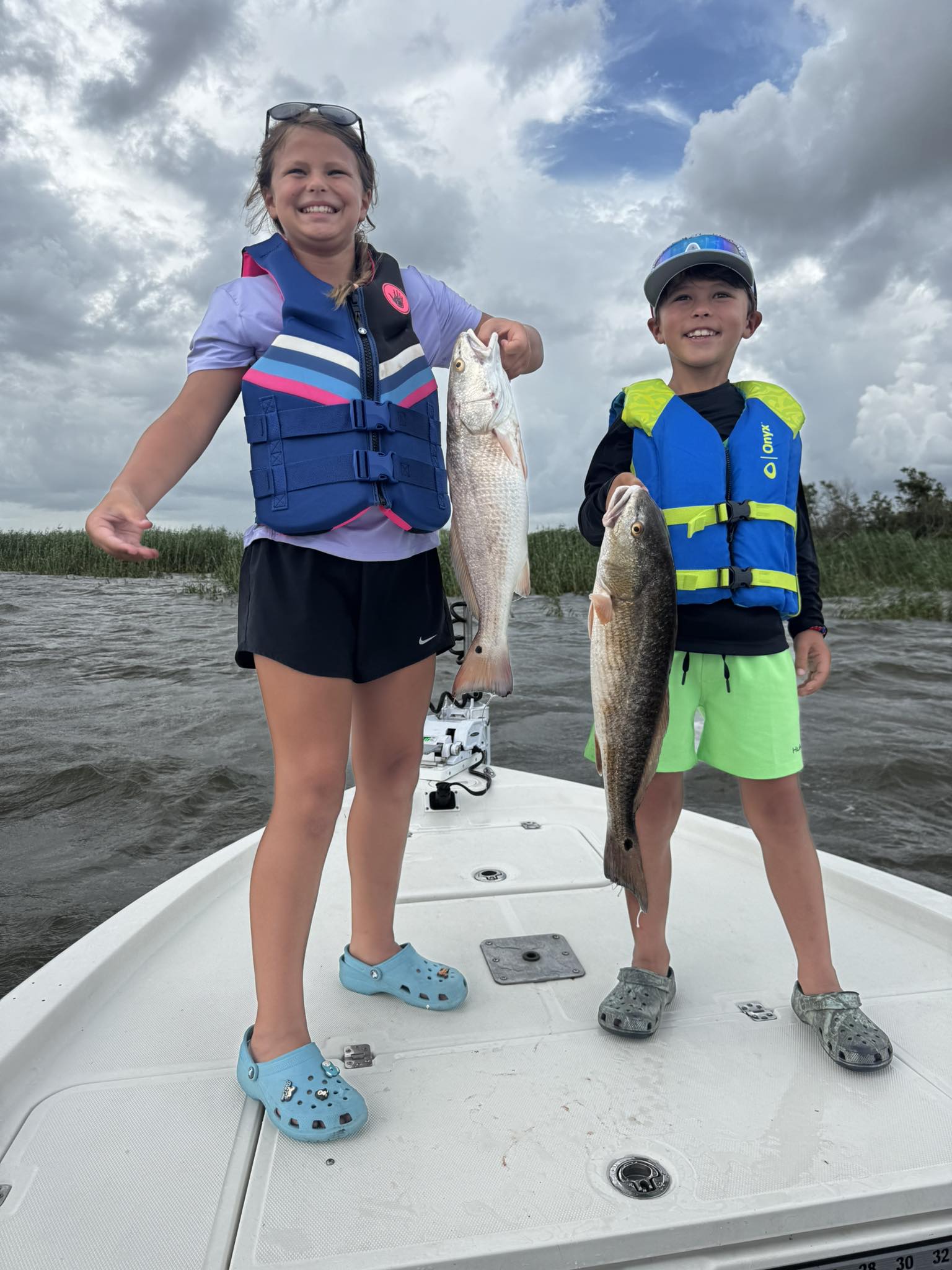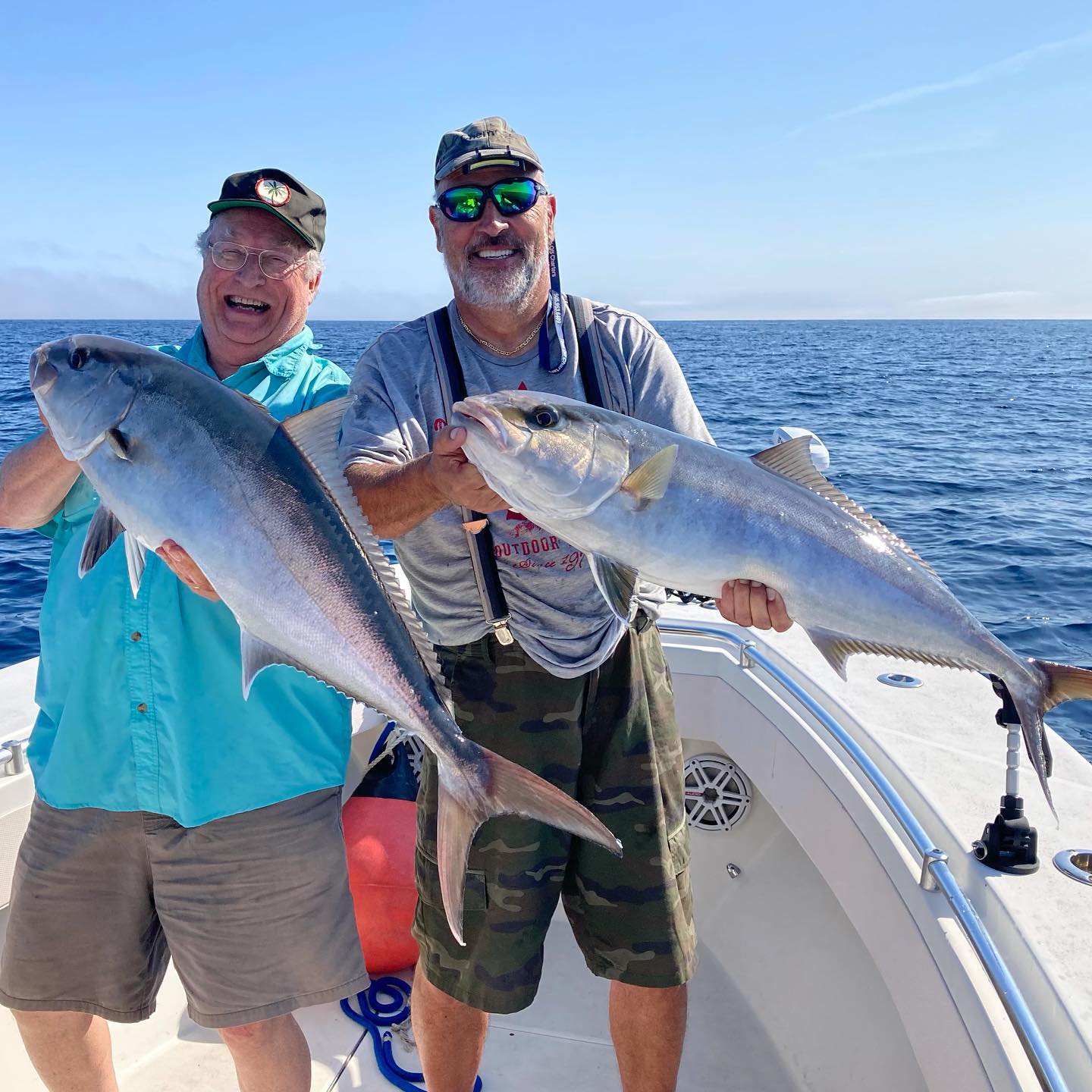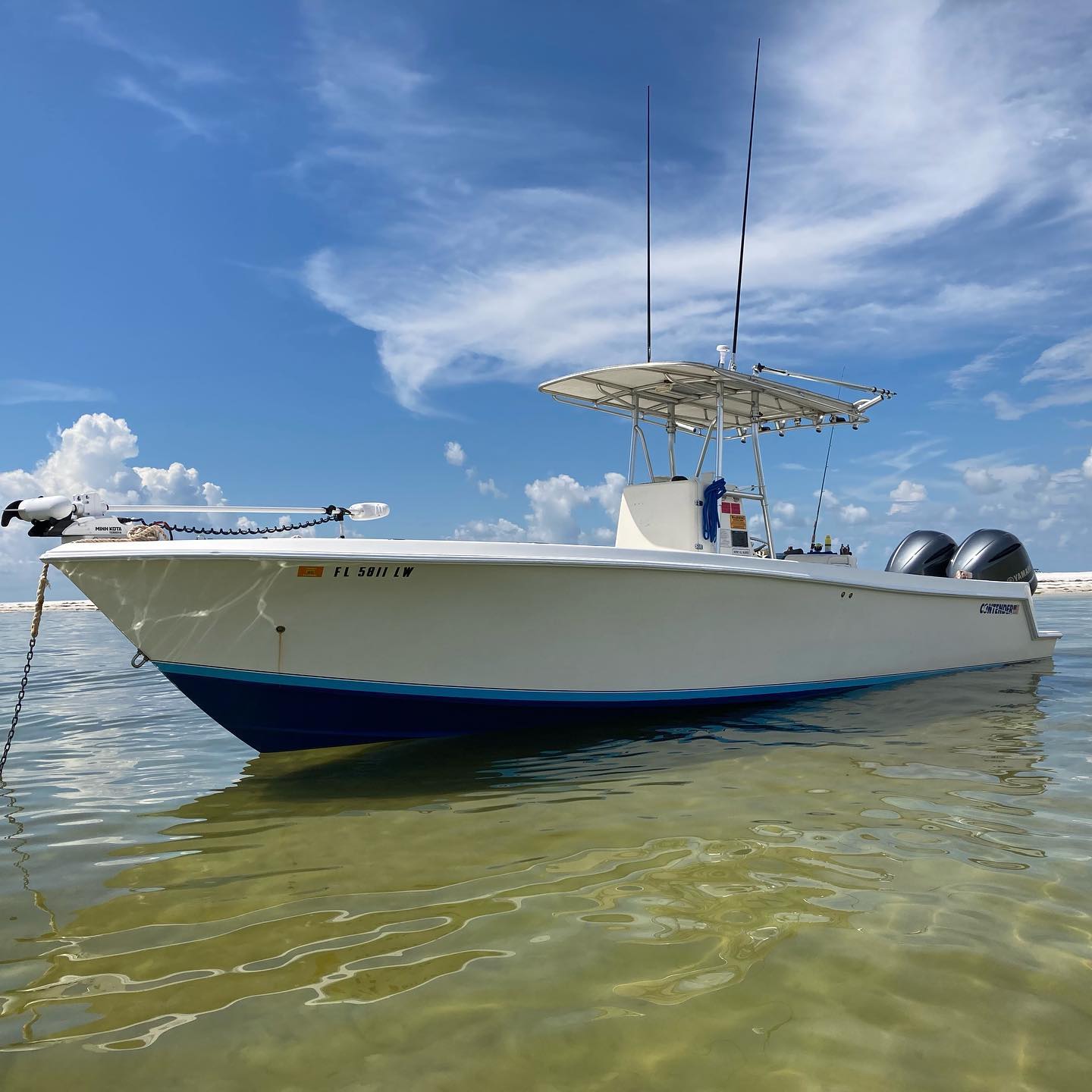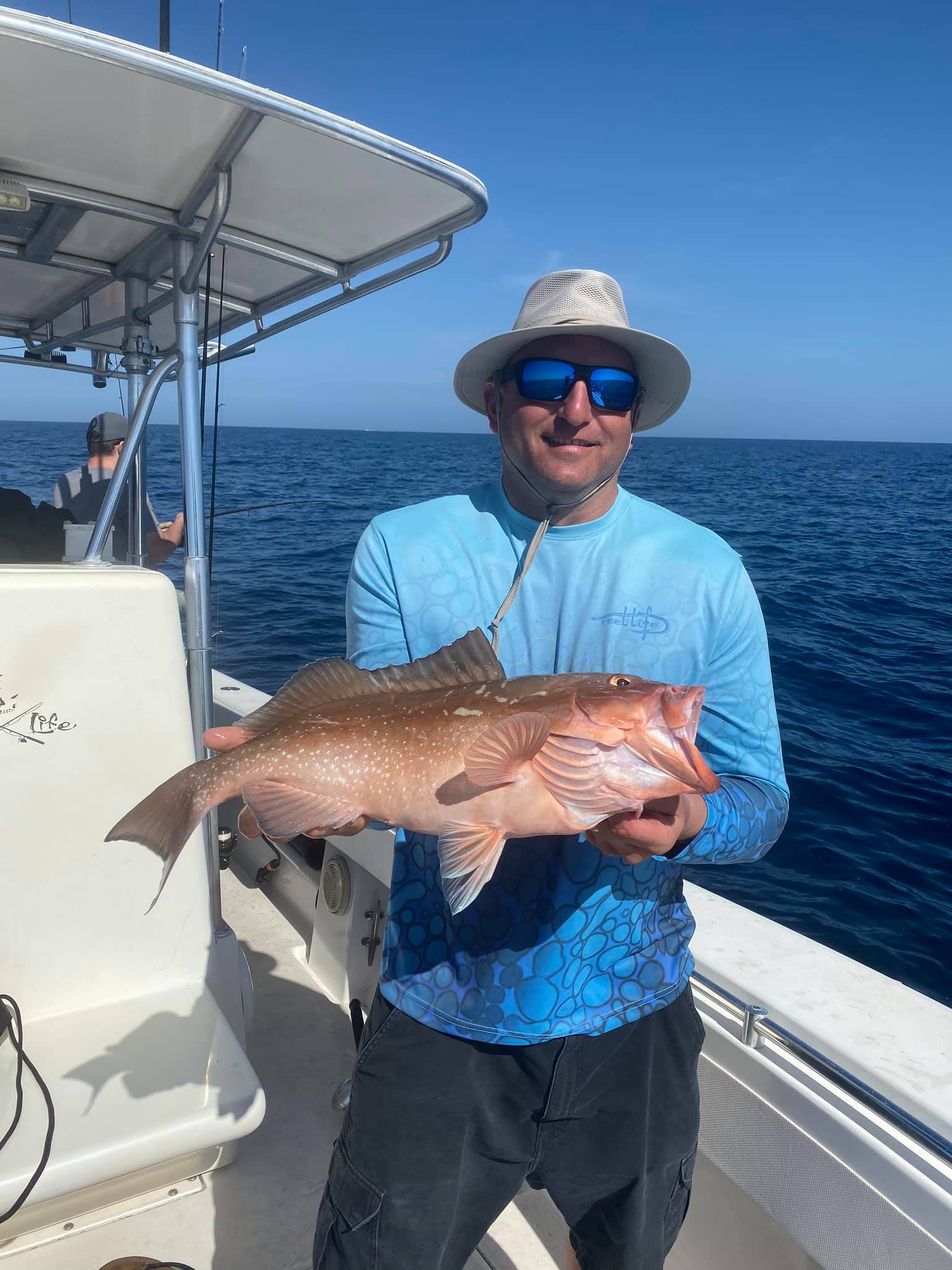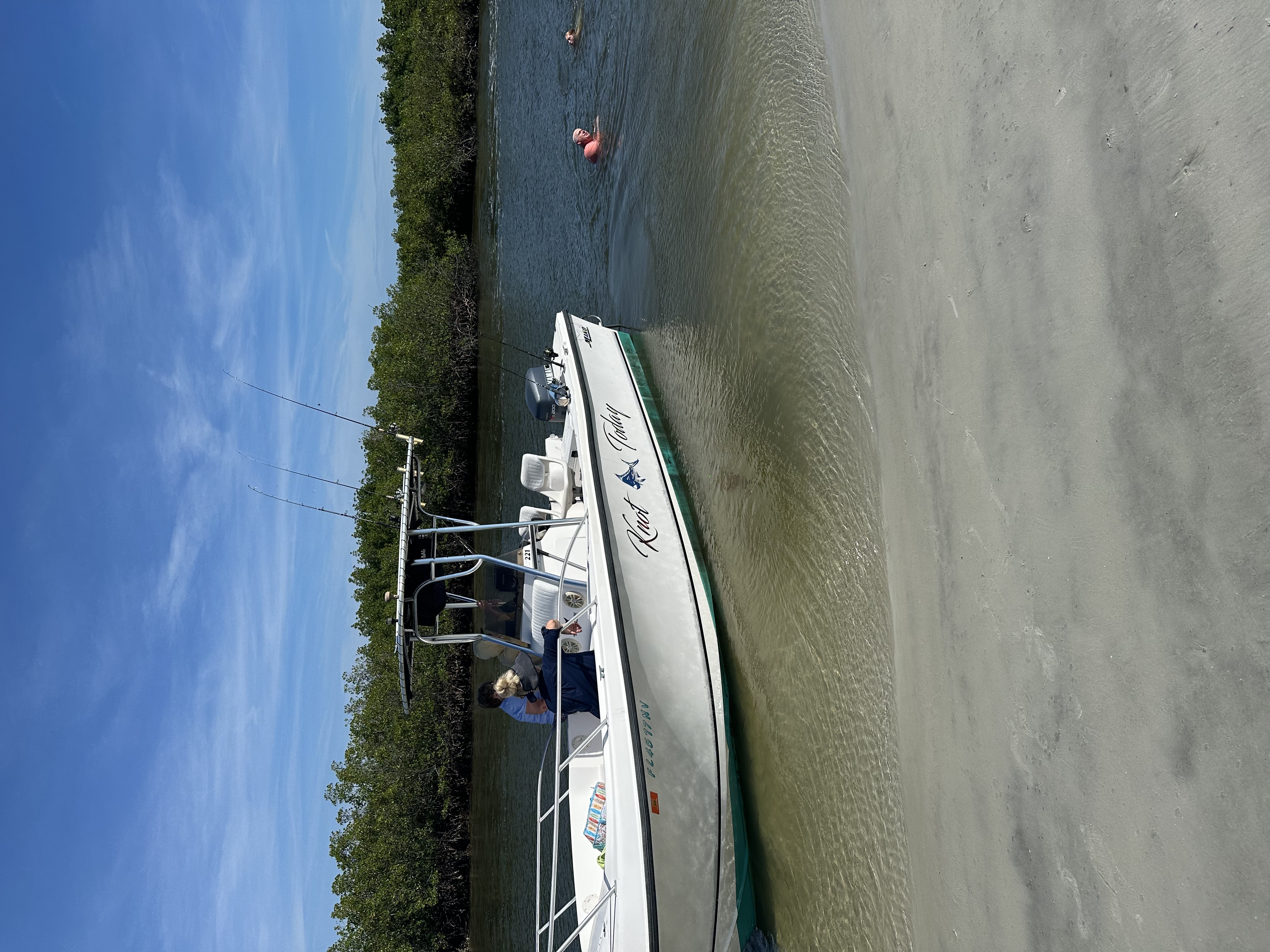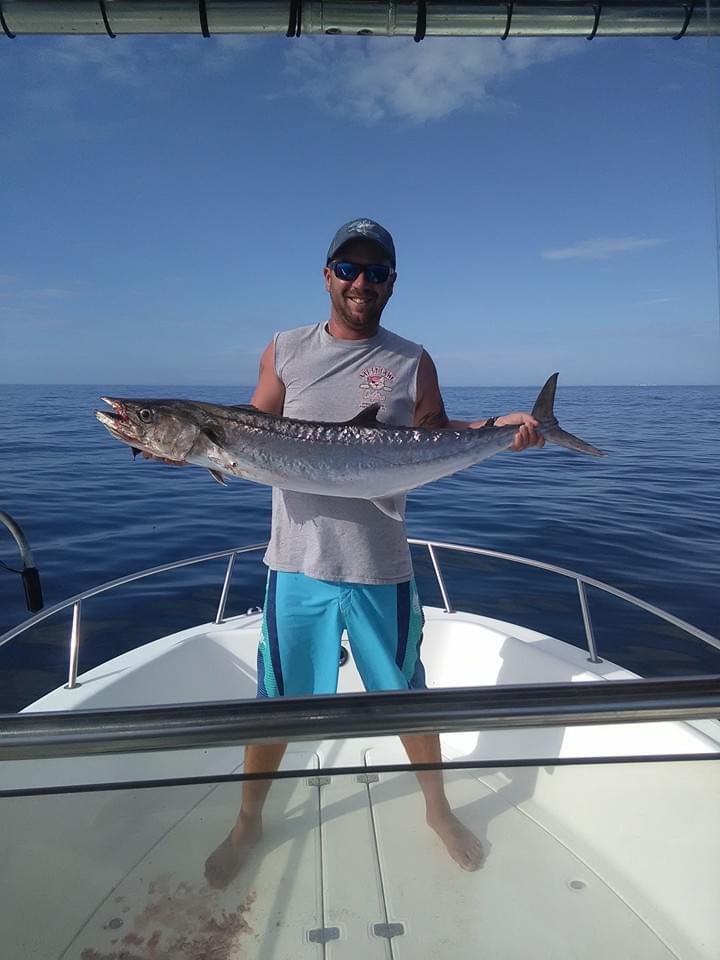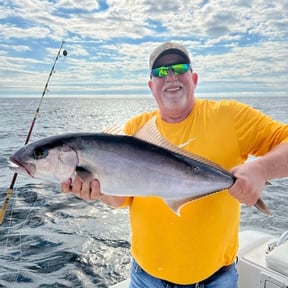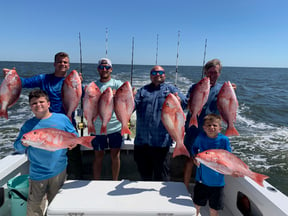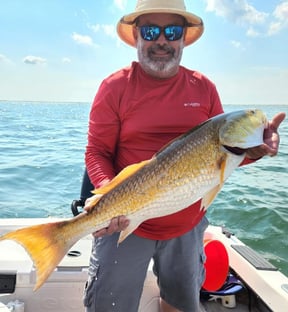Deep Sea, Nearshore Fishing in Panama City Beach
Red Snapper Re-Open December!
Deep Sea, Nearshore, Jetty in Venice
Nearshore Red Snapper Charter
Deep Sea, Nearshore Fishing in Key West
4-8 Hour Offshore Trip
Deep Sea, Nearshore Fishing in Riviera Beach
Palm Beach Offshore Trip
Fishing Trip
Deep Sea, Nearshore Fishing in New Smyrna Beach
Nearshore/Offshore Fishing Trip
Deep Sea Fishing in Dauphin Island
6-10 Hour Trip – Offshore
Inshore, Nearshore, Flats in Venice
Tails In The Tides-Redfish & Trout
Offshore Fishing Trip
Offshore Pelagics
We started Captain Experiences to make it easy to book fishing and hunting guides around the world. With over 2,000 Damn Good Guides, our platform makes finding and booking a trip seamless. Head here to check out our trips.
Red Snapper Seasons By Region
It's red snapper season! The Gulf states have revealed their dates for the 2023 season, so if you're looking to target these voracious feeders, now's the time to book 'em up before someone else does.
Here's an overview of what's been announced. For more in depth information, you can scroll down to each region's section.
Gulf of Mexico Red Snapper Season
The Gulf of Mexico's federal red snapper season will commence on June 1, 2023, with no confirmed end date as of yet.
Florida Red Snapper Season
Florida will have a summer and fall red snapper season, with 2023 red snapper season being the longest combined season since the state began managing red snapper, per an announcement from Governor DeSantis on May 4, 2023. The summer season will run from June 16 through July 31. The fall season will be from the start of October through November, every Friday, Saturday and Sunday.
Alabama Red Snapper Season
Red snapper season in Alabama will run from May 26, 2023, every Friday, Saturday, Sunday, and Monday until the recreational quota is met.
Louisiana Red Snapper Season
Louisiana's red snapper season will also begin on May 26, 2023, but further details, including the end date, are pending. You can stay up to date by visiting the Louisiana Department of Wildlife and Fisheries website.
Mississippi Red Snapper Season
The Red Snapper season for 2023 in Mississippi will open on Friday, May 26th for private recreational anglers and state for-hire vessels per the Mississippi Department of Marine Resources. This season will remain open throughout the week, for both state and federal waters.
Texas Red Snapper Season
In Texas state waters, red snapper fishing is available throughout the year per TPWD's May press release. The federal water's private recreational angler red snapper season commences on Thursday, June 1st.
Book Your Red Snapper Trip
Find and book the best red snapper trips online in minutes.
View All Red Snapper TripsWhat Is a Red Snapper?
Red snapper fishing is a popular activity among anglers worldwide, particularly in the Gulf of Mexico and the Southeastern United States. This species of fish is highly sought after for its tasty meat, making it a favorite among seafood enthusiasts.
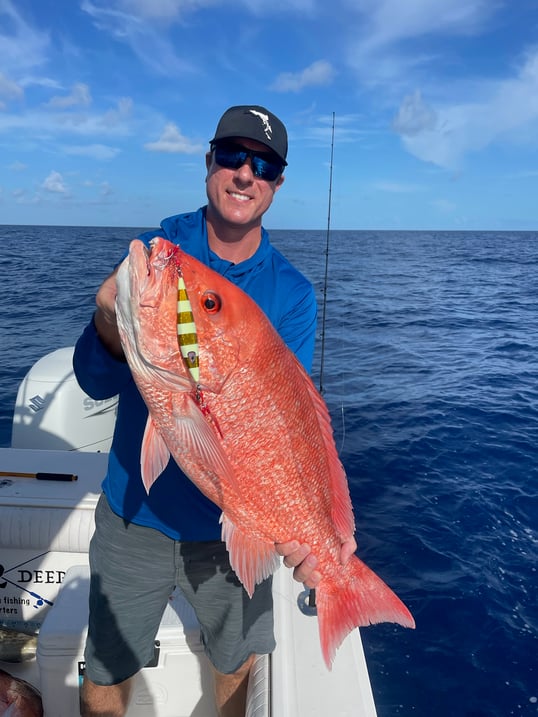
To catch red snapper, anglers typically use bait such as live or cut squid, shrimp, or fish. They also use artificial lures like jigs and soft plastics. Anglers commonly target red snapper on deep sea fishing trips, using heavy tackle and a variety of rigs, including bottom rigs, Carolina rigs, and knocker rigs.
Red snapper are typically found in deep waters, from around 30 to 200 feet deep, where they congregate around structures such as reefs, wrecks, and offshore oil rigs. Captains usually use fishfinders to locate these structures and the schools of red snapper around them.
Once a red snapper is hooked, it puts up a tough fight, making for an exciting fishing experience. Anglers must be skilled and patient to reel in these strong and powerful fish. They are also known for their sharp teeth, so anglers must use caution when handling them.
Aside from their delicious meat, red snapper are also prized among anglers for their size. They can grow up to 40 inches in length and weigh up to 50 pounds, providing a significant challenge for even the most experienced fishermen.
Red Snapper Population
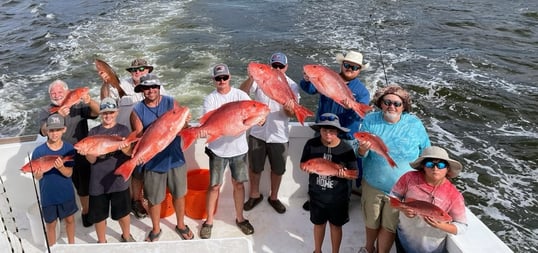
As one of the most sought after fish in the Gulf, red snapper were victims of overfishing from the end of World War II to the mid 1990’s. This was due to a combination of increased commercial harvest and recreational participation.
A fishery rebuilding plan was implemented in 2005 with the goal of building the red snapper population back up by 2032. This plan includes bag limits, size restrictions, and specific fishing seasons which make red snapper the most heavily regulated species in the gulf.
Anglers are encouraged to practice catch-and-release fishing when possible and to follow all fishing regulations to ensure the continued sustainability of red snapper populations.
2023 Gulf of Mexico Red Snapper Season: Recreational Federal For-Hire
The 2023 for-hire red snapper season in federal waters will open June 1st and run until the quota is met. The recreational for-hire quota for 2023 has been set at 3,191,958 pounds, and the recreational private quota has been set at 4,354,042 pounds, bringing the total recreational harvest limit to 7,546,000 pounds.
The fishing season for red snapper in federal waters typically runs until around July 31 each year, although the specific dates can vary depending on the quota and other factors. We can assume the 2023 snapper season will look somewhat similar to recent years.
The recreational for-hire 2022 snapper season in the Gulf of Mexico began on June 1, and closed on August 19. The year prior, the general for-hire 2021 red snapper season was 56 days long, from June 1 to July 26.
2023 Recreational Alabama Red Snapper Season: State Waters
The 2023 Alabama red snapper season will open on Friday, May 26, 2023 for private and state-licensed charters. Fishing will only be allowed on four-day weekends (Friday through Monday), and will continue until the private angler quota is reached. The seasons have been running longer over the last few years, with anglers taking longer to reach the annual quota.
The season for anglers fishing from federally-permitted charter boats will begin on June 1, 2023.
2023 Recreational Louisiana Red Snapper Season: State Waters
The recreational 2023 Louisiana red snapper season will start on Friday, May 26, 2023 in both state and federal waters for private anglers, but only state waters for state for-hire charters (captains who don't have a federal Gulf of Mexico charter/headboat permit for reef fish). Captains with federal reef fish for-hire permits may only run trips in federal waters during the federal for-hire season, which opens June 1, 2023.
Fishing for red snapper in Louisiana state waters will be allowed 7 days a week, while in previous years it was only allowed on weekends.
The state season will continue until Louisiana's yearly allocation of 934,587 pounds for private recreational fishing is almost reached or reached, while still trying to reserve enough of the allocation for the Labor Day weekend.
Anglers are advised by LDWF that the Gray Triggerfish season will coincide with the Red Snapper season during the Memorial Day weekend opening, but will closed from June 1 to July 30, 2023.
2023 Mississippi Red Snapper Season: State Waters
The 2022 Mississippi red snapper season opened Friday, May 27th and closed July, 10th. Fishing was allowed seven days a week with a daily bag limit of 2 fish per person. The 2023 dates have not been announced yet, but we can expect it to be similar.
2023 Florida State Water Red Snapper Season
The 2023 Florida Gulf red snapper season will be record-long at 70 days total (compared to 40 day averages in previous years), with both a summer and fall season.
The 2023 summer snapper season in Florida will open June 16th and close July 31st, which includes both Father's Day and the Fourth of July. The fall red snapper season in Florida will be every Friday, Saturday and Sunday in October and November, also including major holidays like Veterans Day and the days following Thanksgiving.
This is a big win according to most, from maintaining the reputation as the fishing capitol of the country, to preserving Florida tradition, to feeding the local economy and small businesses.
2023 Texas State Water Red Snapper Season
The 2023 Red snapper season in Texas state waters is currently open, and based on the majority of past years, it's likely to stay open year round. During this time, anglers are allowed to fish for red snapper in state waters within 9 nautical miles of the coast. The season may be subject to change based on the assessment of the red snapper population by the Texas Parks and Wildlife Department (TPWD).
For recreational fishing past the Texas state waters, the dates and limits are different, as well as the required licensing per charter captain. As mentioned above, the federal red snapper season will open on June 1, 2023, and close when quotas have been met. For reference, in 2022, the season in federal waters off Texas closed on September 2nd.
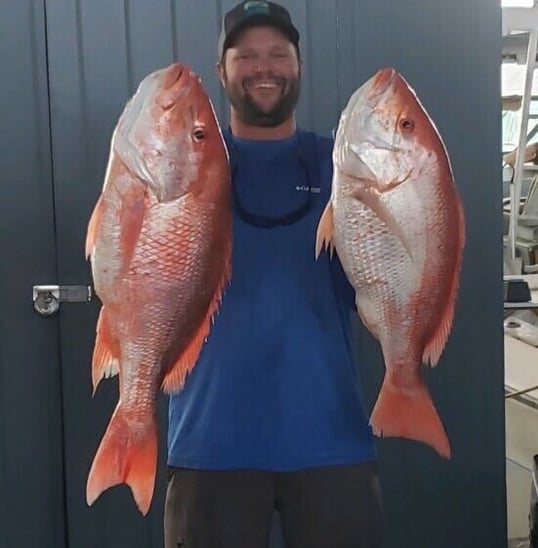
2023 Gulf of Mexico Federal Water Red Snapper Limit
The 2023 federal water red snapper bag limit for recreational anglers is 2 per person, not including the captain and crew. The red snapper minimum size limit is 16 inches total length.
2023 Alabama Red Snapper Limit
The Alabama red snapper bag limit is 2 fish per angler (not including the guide or crew) at 16 inches minimum length.
2023 Louisiana Red Snapper Limit
The Louisiana red snapper daily bag limit is 3 fish per angler, not including the guide or crew, with a minimum length of 16 inches.
2023 Mississippi Red Snapper Limit
The Mississippi red snapper bag limit is 2 fish per angler (not including the guide or crew) at 16 inches minimum length.
2023 Florida Red Snapper Limit
The Florida daily red snapper bag limit is 2 fish per angler (not including the guide or crew) at 16 inches minimum length.
2023 Texas Red Snapper Limit
In federal waters, the daily red snapper bag limit is 2 per person. For Texas state waters, the red snapper bag limit is 4 per fish per angler. Neither quota includes the guide or crew.
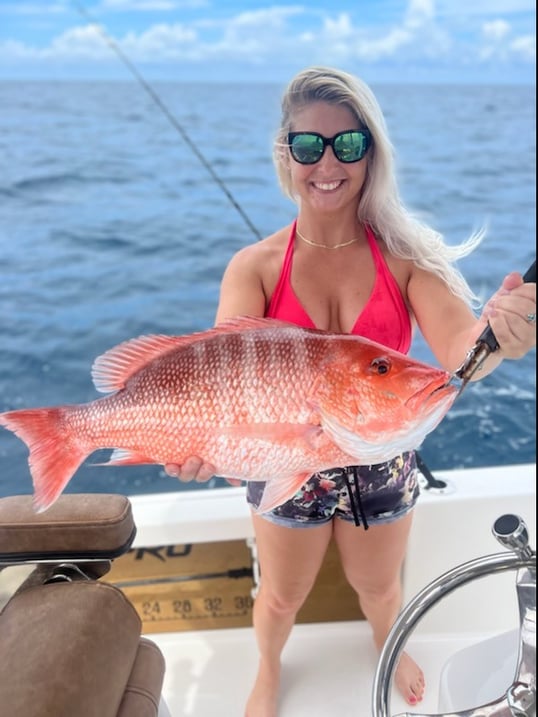
Where Can I Catch Red Snapper Near Me And What Red Snapper Guide Should I Use?
Because of catch limits and the shortened season, red snapper fishing is hard to come by. There are only a few guides licensed to head out to federal waters, there are only a few days a year to head out, and the season can be further shortened if catch limits are reached early. This means if you want to go fishing for red snapper, you need to book a guide further in advance than you normally might for another fishing trip.
Atlantic Red Snapper Season 2023
The 2023 South Atlantic Red Snapper Season has not been announced yet.
In 2022, the recreational red snapper season in federal waters was open for two days in the Atlantic. The season opened at 12:01 am on July 8th and closed at 12:01 am on July 10th.
Where to Go Fishing for Red Snapper
The red snapper fishing is bound to be good basically anywhere along the Gulf, but our go-to spots for top-tier snapper action are Destin, Venice, Galveston, Orange Beach, and Panama City Beach.
What Is the Difference Between State and Federal Waters?
State waters and federal waters differ in terms of regulations (which can mean different seasons, different bag limits, and different size limits), so it can be crucial to know where you stand. Across most of the U.S., state waters extend to 3 nautical miles (just slightly over a normal mile). In the Gulf of Mexico, however, state waters are extended a little further to 9 nautical miles. In other words, for Texas, Louisiana, Mississippi, Alabama, and the Gulf Coast of Florida, a recreational angler can head out 9 nautical miles and still fall under state regulations.
As mentioned above, these boundaries will impact what an angler can catch, but lesser known is the impact on guides: federal reef fish permits in the Gulf of Mexico can be harder to obtain (and more expensive). New permits haven’t been issued since 2003, which means the total number of guides is capped. Federal waters are more productive but it’s harder to find a guide.
Private Recreational Fishing vs For-hire Recreational Fishing
Private recreational fishing and for-hire recreational fishing are two different types of fishing experiences. Private recreational fishing refers to individuals or groups who fish for personal enjoyment and are responsible for their own equipment, transportation, and expenses. For-hire recreational fishing, on the other hand, involves paying for the services of a professional guide or charter captain who provides equipment, transportation, and expertise.
For-hire vessels typically have a larger capacity to catch fish and can take out more anglers than a private recreational fishing trip. Therefore, for-hire vessels can have a higher daily bag limit to allow for multiple anglers to catch fish while still maintaining sustainable fishing practices.
Joey Butrus
Updated on May 10, 2023

March 8, 2022
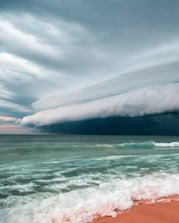
August 21, 2023

November 7, 2023
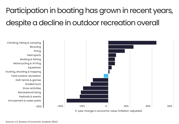
June 28, 2023
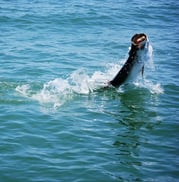
April 15, 2022
Related Articles
September 26, 2022
January 18, 2021
September 29, 2022
Featured Locations
- Fishing Charters Near Me
- Austin Fishing Guides
- Biloxi Fishing Charters
- Bradenton Fishing Charters
- Cabo San Lucas Fishing Charters
- Cancun Fishing Charters
- Cape Coral Fishing Charters
- Charleston Fishing Charters
- Clearwater Fishing Charters
- Corpus Christi Fishing Charters
- Crystal River Fishing Charters
- Dauphin Island Fishing Charters
- Daytona Beach Fishing Charters
- Destin Fishing Charters
- Fort Lauderdale Fishing Charters
- Fort Myers Fishing Charters
- Fort Walton Beach Fishing Charters
- Galveston Fishing Charters
- Gulf Shores Fishing Charters
- Hatteras Fishing Charters
- Hilton Head Fishing Charters
- Islamorada Fishing Charters
- Jacksonville Fishing Charters
- Jupiter Fishing Charters
- Key Largo Fishing Charters
- Key West Fishing Charters
- Kona Fishing Charters
- Lakeside Marblehead Fishing Charters
- Marathon Fishing Charters
- Marco Island Fishing Charters
- Miami Fishing Charters
- Montauk Fishing Charters
- Morehead City Fishing Charters
- Naples Fishing Charters
- New Orleans Fishing Charters
- New Smyrna Beach Fishing Charters
- Ocean City Fishing Charters
- Orange Beach Fishing Charters
- Panama City Beach Fishing Charters
- Pensacola Fishing Charters
- Pompano Beach Fishing Charters
- Port Aransas Fishing Charters
- Port Orange Fishing Charters
- Rockport Fishing Charters
- San Diego Fishing Charters
- San Juan Fishing Charters
- Sarasota Fishing Charters
- South Padre Island Fishing Charters
- St. Augustine Fishing Charters
- St. Petersburg Fishing Charters
- Tampa Fishing Charters
- Tarpon Springs Fishing Charters
- Venice Fishing Charters
- Virginia Beach Fishing Charters
- West Palm Beach Fishing Charters
- Wilmington Fishing Charters
- Wrightsville Beach Fishing Charters
